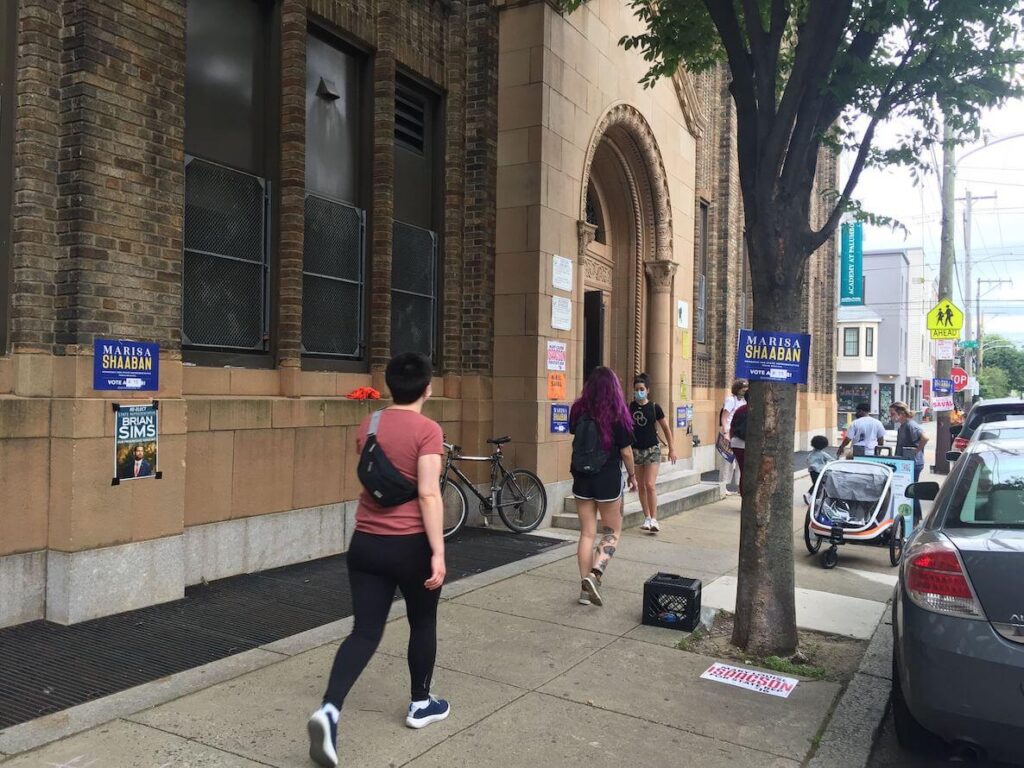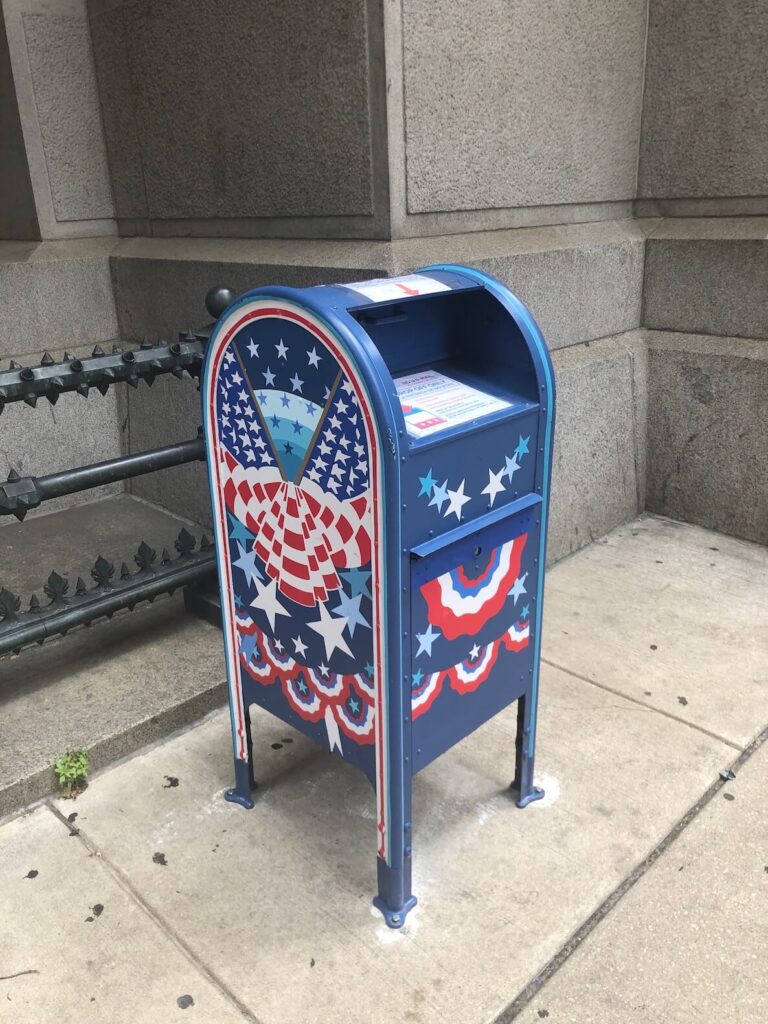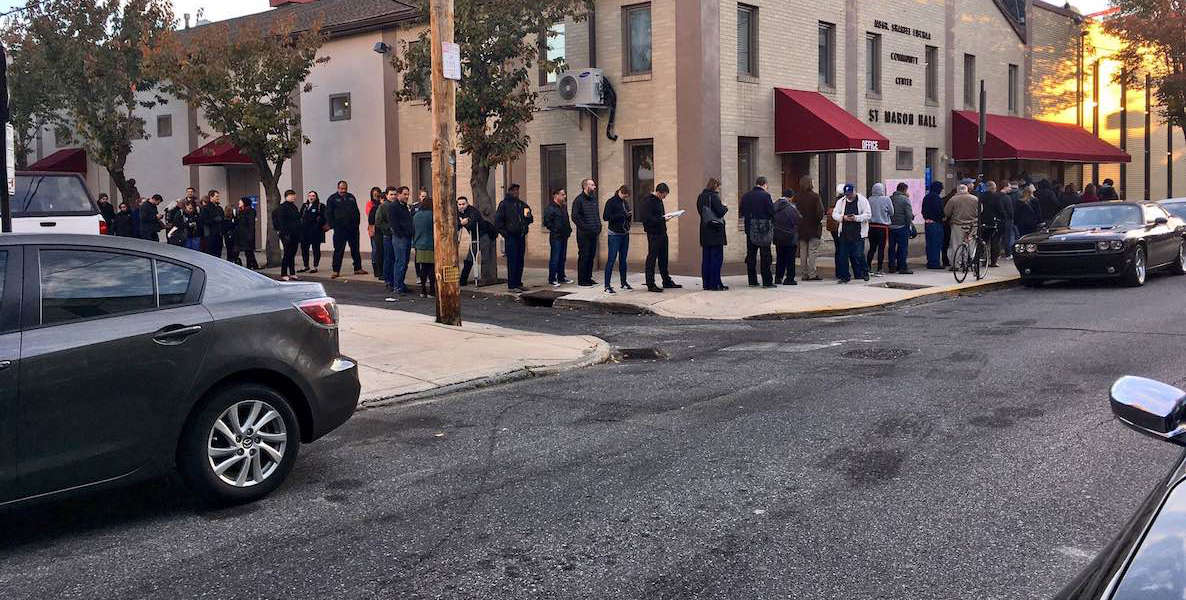Another week has gone by and the Philadelphia City Commissioners are still not finished counting the ballots from the June 2 primary.
It’s still unknown how many total ballots remain to be counted, but reports last week indicated there were upwards of 14,000 additional ballots, on top of that total, which came in after Election Day on June 2.
Because of Governor Wolf’s deadline extension for Philadelphia and five other counties—plus an emergency court order in Bucks County—ballots postmarked by Election Day could still be counted if they were received by this past Tuesday, June 9.
That’s a huge group that applied for mail-in ballots in time, but would have been disenfranchised if not for the deadline extension. (Conversely, there is evidence that other voters who applied for their mail ballots in time did not receive them before Election Day.)
At the same time, the deadline extension conspired with several other factors and systems-level failures to delay the vote counting for a long enough period that politicos are spooked at the possibility of a repeat in November.
speed up the countHow to
To speed things up, and reduce the likelihood that the Presidential election will be decided by an agonizing weeks-long wait for the commissioners to finish counting Philadelphia’s ballots, a few different things would need to happen.
How to speed up the vote count in PA in November

Take advantage of Act 77 and increase “new” voting options
One reason why the count is so slow is that this is the very first time Philadelphia has had an election where most people voted by mail, and there are a ton of ballots to count.
Thanks to some critical Act 77 election reforms, Philadelphia must provide a number of ways for voters to cast their ballot. We got a little sample of this in the primary when the commissioners offered the mobile ballot drop-off options and ballot boxes.
These options are important parts of the election toolkit under the best of circumstances, and will be absolutely essential come November. We need to do more of this, and start earlier.
More mail
About three-quarters of people who requested a mail-in ballot also opted to automatically receive a ballot in the mail for the November general election, which should make it easier for the City Commissioners to prepare and mail out the ballots, but this won’t change the time required to count them without State-level legislative changes (see below.) Current math indicates that over 120,000 mail ballots are set to go out automatically in November, and presumably most of those voters will use their mail ballots.
Additionally, the City Commissioners should advocate for the resources to send mail ballot applications to all voters who didn’t already sign-up for a November mail ballot, and they should time this as close as is practical to the voter registration deadline, to allow maximum participation earlier in the year.
The difference between a week-long count and a two- or three-week long count is a lifetime in politics, and the primary election experience should be a wake-up call to everyone.
Earlier counting
Arguably the most important way to both expedite the canvass (aka the vote count) and expand electoral participation is to amend state law to allow the city commissioners to start processing mail ballots—taking all steps to verify them, but not scan them—the week before Election Day.
County Boards of Elections unsuccessfully advocated for that tweak before the primary, and it will be interesting to see how the dynamics shake out over the summer in Harrisburg, when concerns about delayed election results are no longer theoretical.
The commissioners, moreover, need to communicate with voters that those who are no longer shopping for candidates can help expedite the process by getting their ballots in more than a week before the election.
More dropboxes

Additionally, to maximize the number of mail-in voters who get their ballots back early, the City needs to dramatically increase the number of dropboxes across the city. The USPS is going to be absolutely swamped, and shifting a mail ballot from a four- or five-day delivery timeframe to a same-day pickup should make a material difference. One thing Delaware County got right in 2020 was they stationed a dropbox outside every polling place, and Philly should follow suit.
Early Voting
All of these ideas increase the number of mail ballots. If we’re assuming that Covid-19 might still impact people’s willingness or ability to vote in-person on Election Day in November, we should focus most of our advocacy on the expansion of the one non-mail and non-Election Day voting option: early voting.
Per Act 77, the City can operate staffed early voting centers in different parts of Advocate for changeDO MORE
If there are only a couple of locations, we could see the worst of all worlds: persistent lines, but depressed overall interest. Instead, there need to be so many locations that all voters see or hear about them, and can trust the voter experience will be quick and safe.
More control over electronic poll books
The reason why the commissioners had to pause the actual counting of ballots earlier this week was so they could first reconcile the mail-in votes and in-person votes to make sure that no one had voted more than once.
The main thing to know is that at each polling place, there’s a poll book with all the eligible voters in the division, and there’s also a supplemental book with names that may not have made it into the main book. People who show up to vote but whose names don’t appear in either book, are still allowed to cast a provisional ballot, which could get counted at a later date.
People who had requested mail-in ballots prior to the poll books and supplemental books being printed were easier to account for after the vote, since they had already been marked as mail-in voters in the main poll book. Those voters were—or should have been—instructed by their poll workers to vote with a provisional ballot.
However, people who submitted their mail-in ballot applications after the poll books were finalized were only marked as having requested a mail ballot in the supplemental poll book. Understanding of, and facility with, the supplemental books is notoriously low at most Philadelphia polling locations, even under normal circumstances.
The fear is there could be an ugly several weeks of political gamesmanship by the Trump campaign around vote-counting that may or may not lead to a full-on Constitutional crisis.
The commissioners knew that they couldn’t assume all poll workers in all polling places checked the supplemental lists on June 2, so they had to assume that some voters may have voted in person, having voted by mail, presumably believing that their machine vote would nullify their mail ballot.
The problem that electronic poll books could solve is that if the poll books didn’t need to be printed by a certain time (because they can be updated electronically) then there wouldn’t be a need for such a long reconciliation process because the poll book would be fully updated with everyone who had requested a mail ballot.
VOTE!Do Something
The Department of State and counties already went through the technology shopping process for electronic poll books at the same time they were deciding on new voting machines, so in theory it may be possible to procure the poll books in time for the November election.
Even with these changes, counting the mail-in votes is still going to make this process take longer than everyone is used to. But the difference between a week-long count and a two- or three-week-long count is a lifetime in politics, and the primary election experience should be a wake-up call to everyone with any say over funding or state election laws to do whatever they can to speed up the count in November.
Jon Geeting is the director of engagement at Philadelphia 3.0, a political action committee that supports efforts to reform and modernize City Hall. This is part of a series of articles running on both The Citizen and 3.0’s blog.
Header photo by Josh Middleton



